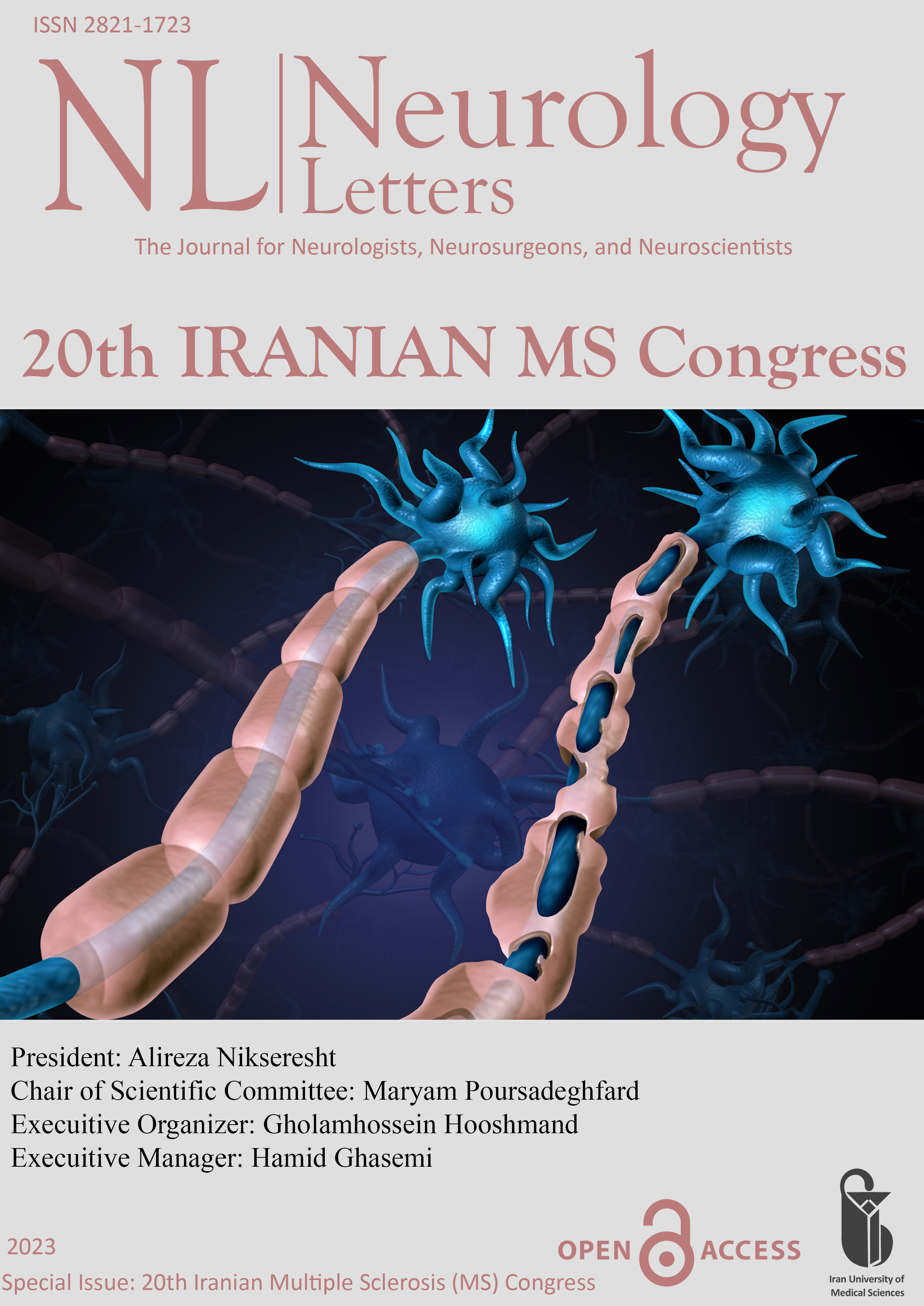Multiple sclerosis, Pregnancy, Breastfeeding (ORP-40)
Document Type : Oral Presentation
Author
Multiple sclerosis research center, Neuroscience institute, Tehran University of medical sciences, Tehran, Iran
Abstract
Multiple sclerosis (MS) is a chronic autoimmune disease that affects the central nervous system. It affects mainly people between 20 to 40. it's crucial to have open and ongoing discussions with your patients If they are living with MS and planning to become pregnant or if they are already pregnant, and provide personalized guidance and recommendations based on patient-specific health conditions and circumstances.
Pregnancy itself does not increase the risk of developing multiple sclerosis, nor does MS adversely affect the ability to conceive. In fact, research suggests that pregnancy can have a protective effect on the progression of MS symptoms. Many women with MS experience a decrease in disease activity during pregnancy, particularly in the later stages.
However, it's important to note that every person's experience with MS is unique, and the impact of pregnancy on MS can vary significantly from person to person. It's not uncommon for some women to experience a temporary worsening of symptoms during the postpartum period, commonly referred to as a "relapse."
When it comes to breastfeeding, it is generally considered safe for women with MS to breastfeed their babies. Breastfeeding has numerous benefits for both the baby and the mother, and in most cases, it does not impact the course of MS.
However, certain medications used to manage MS symptoms may affect breastfeeding. Some disease-modifying therapies (DMTs) are not recommended while breastfeeding due to limited safety data. the healthcare provider can guide patients on the best approach, considering factors such as the severity of MS, the specific medication, and the potential benefits and risks for both mother and baby.
It is crucial to communicate plans for pregnancy and breastfeeding with healthcare providers early on. They can assess overall health, review medication regimens, and develop a management plan that allows patients to have a safe and healthy pregnancy while effectively managing their MS symptoms.
Apart from medical considerations, it's also important to prioritize self-care during pregnancy and while breastfeeding. This includes getting enough rest, eating a healthy diet, engaging in moderate exercise as recommended by healthcare providers, and managing stress levels. Support from loved ones and connecting with local or online communities of women with MS can also provide emotional support and helpful tips during this special time.
Keywords
 Neurology Letters
Neurology Letters
